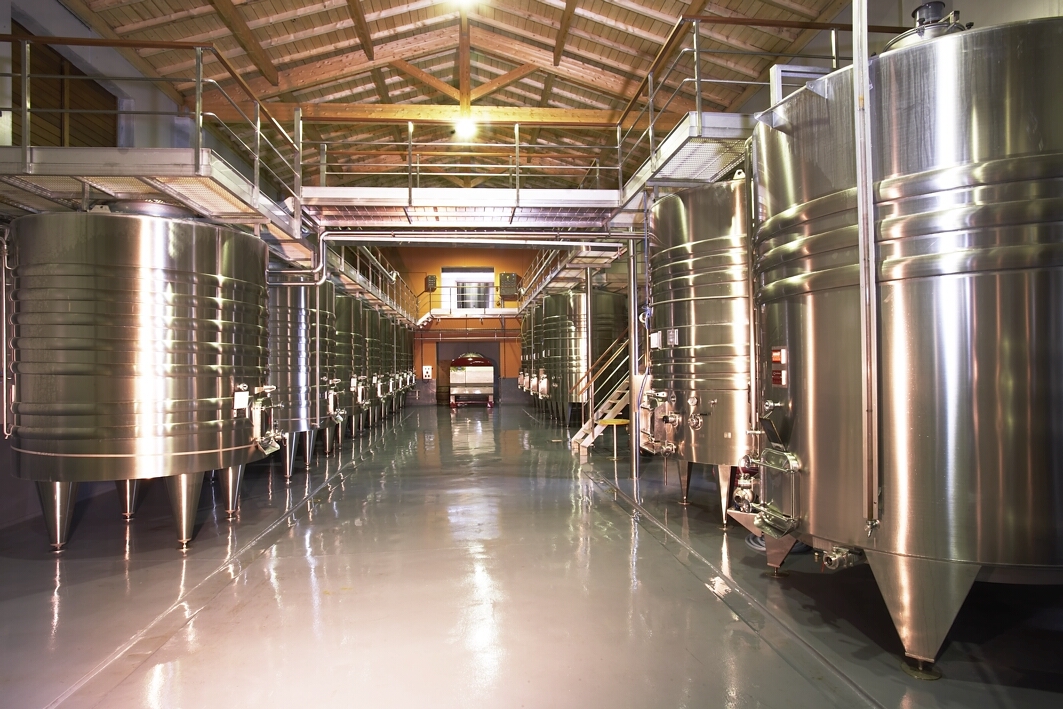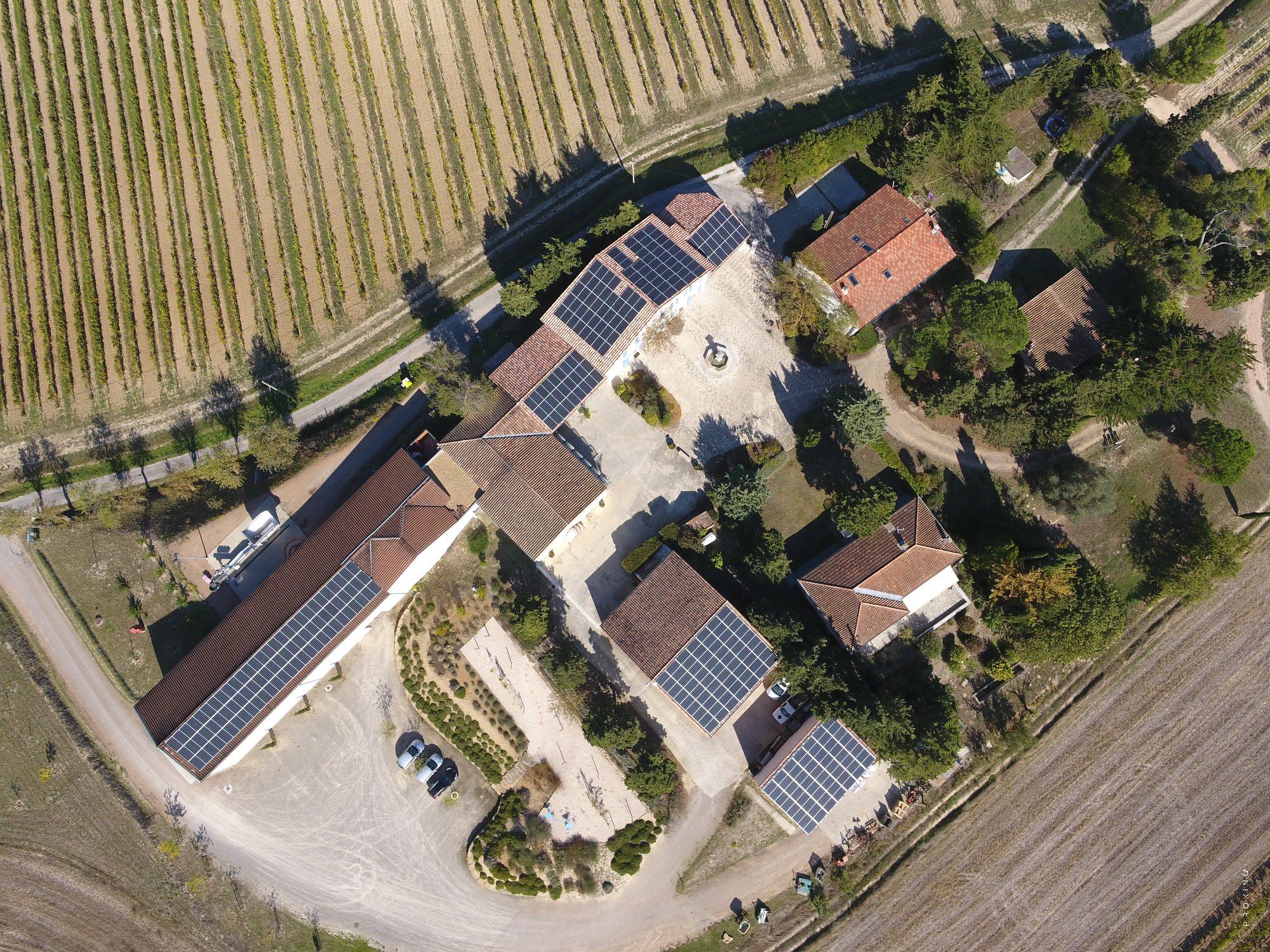This immense ecosystem and the wealth it brings, made us realize the importance of the care we had to give it.
Our first step was in 2011, sensitive about environmental problems, we turned to Organic Farming that is less polluting for water, soil and air in order to preserve as many plant and animal species as possible.
Ensued some important decisions :
In 2017, we have chosen solar energy, making the Estate completely autonomous in terms of electricity production and consumption.
This endless energy, coming from the sun, respects nature and reduce considerably greenhouse gaz emission.
Greenhouse gaz emission is a word that we all know since few years. But… what is it ? Sunbeam are absorbed and partially stored on Earth’s surface. When the Earth returns these rays to infrared rays, greenhouse gases (mainly produced by humans) stuck some of the rays and prevent them from escaping into space. Thus, this natural phenomenon contributes to the global warming of our planet.


Around the Domaine, close to the vine, we installed several insects hotels to promote the installation of “auxiliary” insects such as ladybugs, butterflies, bees and earwigs, ... once installed, these little beasts will pollinate plants and fight harmful insects: it is a real alternative to chemical treatments. For example, lacewings eat an average of 500 aphids per day. In autumn and winter, the insect hotel helps insects to survive and allows them, when the sun returns, to act. They are contributing to local biodiversity, and restoring the food chain.
In 2020, welcomed about twenty beehives, because to watch over the state of our planet, no one has ever invented better than the bee and its essential role in pollination. The beekeeper contributes to the maintenance of plant biodiversity by ensuring the healthy population of domestic bees, essential for the balance of ecosystems, whose development depends on the quality of the environment.


Hedges are arranged between most of the grape parcels, they represent microhabitats and protective corridors for many species, reservoirs for food, and they can also serve as a windbreak. Thanks to their roots, they consolidate the soil and fight against soil erosion. Hedges pump excess water during periods of humidity, they act as a water regulator.
